

INDEX
Being somewhat of a horror and sci-fi movie fan, what is a good movie without one or two monsters? And yet, what is it about those hideous creatures that grabs our attention. I mean, when you look at the news and see all the cruelty and inhumanly behavior in the world, you’d rather turn away, or switch to the next channel. So how can you explain the mass admiration for the likes of Freddy & Jason? What is it about that nasty looking murderous Alien, that makes it so attractive in the eyes of so many of us? Now that there’s the Internet, I hope I may share my opinions with the rest of you, folks. So I decided to go where only brave & extremely stupid people go - the kingdom of Ze Monsters! Hurry up, Ygor, we haven’t much time! Ha, ha, haaaaa....
First of all, how the professionals define "A Monster": 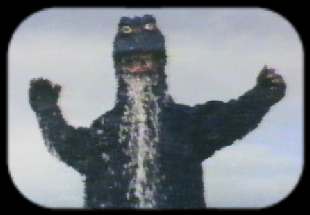
monster n.
1. Imaginary animal compounded of elements from various creatures.
2. Person or thing of portentous appearance or
size.
3. Inhumanly cruel or wicked person
4. (path) Grossly malformed product of human conception.
(The new Oxford Illustrated Dictionary)
Seems to cover things up pretty neatly, don’t it? Not really. The first thing I
did in order to understand monsters better, was to open "The Great Book of
Monsters" and write down a list of typical monsters, that I can relate to. Next was
to try and find common grounds for monsters. And then I discovered that monsters differ so
much one from another, that it makes more than a superficial linguistic description in
order to understand monsters better.
One important word, before I go on. This article in no way will try to offer Freudian
explanations for monsters. I’m not interested in the least, whether or not the
Alien monster represented feminism in a negative way. I mean, who gives a fuck about that?
Do you really go a monster flick in order to deal with vaginas or phallic symbols? I find
some philosophical treatments of horror movies an insult to the
viewer’s non-intelligence. We’re there to have fun, right? So
keep you’re deepshit philosophy to French movies, where it belongs! (R is not gonna
like this at all, I’m afraid. But this is a free country, and I can say whatever I
wa....)
So, back to monsters. The first thing most people will think of when dealing with monsters
is a horrendously ugly creature, usually of giant size, with inhuman powers and one
intention: to eat you!
Well, not so. Let’s look at the surprisingly different types of monsters:
| Human | Dracula |
| Almost Human | Frankenstein’s monster |
| Animal | Birds |
| Animal-like | Alien |
| Machine | HAL |
| Indescribable Creature Shape Shifter |
The Thing |
| Formless | The Blob |
| Non Visible | The Id Monster |
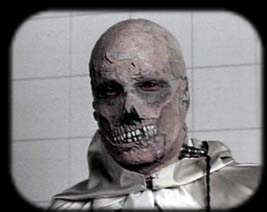 Notice the difference between these types. Dracula not only is
human, but also extremely attractive, especially to women. It is only his nature that
reveals his threat to mankind. Although there are different versions to the origins of Dracula,
I believe the original legend of Vlad Dracul described him as an extremely cruel dude, who
deserved the punishment (yes, it is a punishment to be an undead). This is a twist on the
usual villain, the supernatural forces surrounding him turns him from just another
"bad guy" into a human monster. Other human (albeit not very humane...) famous
monsters are Freddy Krueger from "Nightmare on Elm st.", Jason
from "Friday the 13th", Damien from "The Omen", Dr. Jeckyl
& Mr. Hyde, the Hunchback of Notre Dame (THE classic human outcast), the Living
Dead etc, the vengeful Dr. Phibes.
Notice the difference between these types. Dracula not only is
human, but also extremely attractive, especially to women. It is only his nature that
reveals his threat to mankind. Although there are different versions to the origins of Dracula,
I believe the original legend of Vlad Dracul described him as an extremely cruel dude, who
deserved the punishment (yes, it is a punishment to be an undead). This is a twist on the
usual villain, the supernatural forces surrounding him turns him from just another
"bad guy" into a human monster. Other human (albeit not very humane...) famous
monsters are Freddy Krueger from "Nightmare on Elm st.", Jason
from "Friday the 13th", Damien from "The Omen", Dr. Jeckyl
& Mr. Hyde, the Hunchback of Notre Dame (THE classic human outcast), the Living
Dead etc, the vengeful Dr. Phibes.
Frankie’s is human-like. Its hideous face is what makes it a monster. It
represents a freak of nature. Looking at it, we feel inclined to hate it. That’s what
the village people were feeling toward the monster, although at least according to the
book, its only crime was to look deformed. The monster here represents our innermost fears
from malformed humans. Since we’re all brought up to differentiate between good &
evil in the world by external appearance, this is the result. Thank god it can be so
provoked to turn it to a perfect killing machine. I believe this is actually a mirror to
the soul of the ordinary people. Check out the Penguin in "Batman
Returns", or "Freaks". Rejection and betrayal turned these poor human souls
into dangerous in nature. Usually the horror movies will find some sort of justification
for hating these creatures, they kill innocent people. But somewhere, if you examine
closely, you’ll learn that it is in our power, and definitely easier, to eliminate
the horrible circumstances by acceptance of the different, than to face the horrible
results otherwise.
Compare this creature to the aliens of "Alien Nation" and you’ll see the
difference between two human-like creatures. Why don’t the aliens there seem evil? I
guess the answer lies in whether the difference lies between malformation, which
represents a deviation from the harmonious order of nature/god (defining deviation from
good) and another human-like being whose looks do not stray from harmony, it only looks
different. Other "almost humans" are the Wolfman, "Invaders from
Mars", the Golem, the Mummy etc.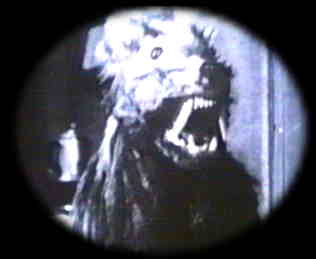
Instead of The Birds, I could have put here numerous films about roaches, rats, sharks and other creepy-crawling thingies. But Birds is the perfect example that a monster can be an everyday animal with a deviation. This time, the monster is not a singular creature, but a collective being which poses a threat toward humanity. Usually any animal with the ability to bite will do. In some extreme cases you’ll find really strange creatures, such as in "Night of the Lepus" (killer bunnies, yikes!). Another famous animal monster is Mr. King Kong, who represents the naturally huge animal monsters. Unusually big creatures can also be found in "Tarantula", "Them" and countless others.
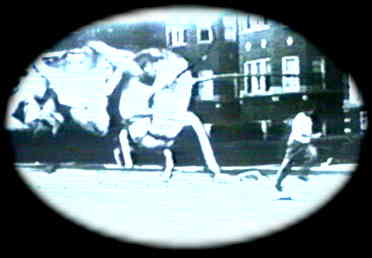 Alien is a remotely lizard-like creature. It’s an animal, but not
as we know it. Again, its exterior makes it obviously an enemy. The fact that it kills
nice people in a spree also helps establishing its true evil nature. The external
deviation from nature is subtle. Most of us hate reptiles anyway. Add a couple of extra
teeth (and a 2nd mouth, yuck!), and you’ve got yourself one terrifying enemy. Notice
the unusual subtlety director Ridley Scott used in the original movie: we saw very little
of the Alien. Its horrendous nature was established by actions against representatives of
humanity. Other creature-like monsters are the demon in "Night of the Demon",
the Alligator People (their resemblance to humans is simply because it was easier
to dress people as monsters than to create one from scratch).
Alien is a remotely lizard-like creature. It’s an animal, but not
as we know it. Again, its exterior makes it obviously an enemy. The fact that it kills
nice people in a spree also helps establishing its true evil nature. The external
deviation from nature is subtle. Most of us hate reptiles anyway. Add a couple of extra
teeth (and a 2nd mouth, yuck!), and you’ve got yourself one terrifying enemy. Notice
the unusual subtlety director Ridley Scott used in the original movie: we saw very little
of the Alien. Its horrendous nature was established by actions against representatives of
humanity. Other creature-like monsters are the demon in "Night of the Demon",
the Alligator People (their resemblance to humans is simply because it was easier
to dress people as monsters than to create one from scratch).
HAL ("2001") is a more extreme case of exterior vs. actions. HAL is merely a machine, a computer. It looks far more attractive than, say, my lousy Pentium, so is its performance. You wouldn’t suspect a computer to be an monstrous enemy, unless it proved so in actions. Among other famous monstrous machinery, we find another computer "Collosus - the Forbin Project", the robot Gort from "The Day the Earth Stood Still" and "The Terminator" among others.
The Thing (John Carpenter’s version) doesn’t look like anything we know. It is a cunning and dangerous being. It can shape-shift into any kind of creature, possessing its body. When moving from one body to another we witness the horrible exterior of the creature which is quite beyond description, you have to see the movie for yourselves, if you haven’t so far. Indescribable others are "The Creeping Terror" (carpets?), "It Conquered the Earth" (cucumber?).
The Blob is formless, proving that anything can be a monster, even goo. Another formless (also highly adaptive) monster is the T-1000 from "Terminator 2".
The classic film "Forbidden Planet" proves that a monster doesn’t even have to be seen in order to be monstrous. The Id monster presents a deadly threat to humans. Its presence is only implied by violent actions. This is an imaginative twist on ghosts.
Where can we expect to find monsters?Ok, this may come as bad news to you all, basically everywhere!
| Land | The Living Dead |
| Sea | Jaws |
| Rivers | Piranha |
| Air | Q |
| Underground | Tremors |
You see, no place is safe from them ‘orrible monsters!
Monsters have all kinds of intentions.
| Food | Bad Taste |
| Drink | Dracula |
| Sport of Hunting | Predator |
| Incubation | Alien |
| Bodily Possession | Invasion of the Body Snatchers |
| Soul Possession | The Exorcist |
| Planetary Possession | War of the Worlds |
| Personal Reasons | The Fog |
| Scare us off | The Haunting |
| Revenge | Attack of the 50ft Woman |
| Love (?!?) | It’s Alive |
We all have the right to eat, some monsters exercise this right on humans. Most monsters eat us because we’re the most edible thing around, or we possess a certain element which cannot be found in other creatures, such as human brains, like the Living Dead or Frank Henenlotter’s "Brain Damage". (Although I’d claim that most of the victims in "Brain Damage" seemed to lack any in the first place)
In rare cases, the monsters see potential which is beyond "let’s just eat ‘em", like in "Bad Taste" where humans are the doomed to be intergalactic fast food.
Dracula is the archetype of the drinker. Vampires portray the need for something humans can offer. They need it to exist. It is not a feeling of animosity towards humans that makes them drink our blood. As a result, humans are not supposed to die from blood loss, they turn into the undead themselves. This is a more positive fate than being eaten, wouldn’t you agree?
Some monsters, such as the Predator reverse our logic of things. As in one episode of "The Twilight Zone" where human astronauts find themselves locked inside a house-like cage in order to be displayed for the amusement of the Martians, the Predator is a superior being to most humans, and goes on a killing spree just for fun.
Alien is like a sophisticated spider. It only seems to kill humans. After a
while we discover it actually uses them in order for its fetus phase to incubate. At the
end of this process the human host dies.
In a twist on that notion the Body Snatchers use the human body because that is the only way they can reproduce. Of course, bodily possession is not the end, just the means. But the price humans pay is their own control of their bodies. A death within, if you wish.
Another form of possession is the straight soul possession. A favorite for the Devil, as he proves in "The Exorcist". Sometimes there’s no need even for taking control over an innocent person, an evil child will do, such as Damien.
Sometimes all that aliens want is to inhabit our planet. Some prefer the violent way, as witnessed in the likes of "War of the Worlds" and "Independence Day". Sometimes they just want to live peacefully beside us, like the creatures of "Cocoon", or "Alien Nation". Others are just looking for world domination, like the children from "Village of the Damned". Whether peaceful or not, aliens pose a basic threat to humans, invoking a natural sense of alarm. But sometimes confrontation is due to fear and hatred of the other. Classic case is ET (yep, ET is also a monster).
A personal interest for monsters can be object possession. In John Carpenter’s "The Fog" the monsters stalk the town until they find what they’re looking for. In "Gorgo" all the havoc starts when the worried dinosaur mother goes to save her child. In these cases humans suffer, because they were not meant to live side by side with these monsters.
Ghosts usually utilize violence to drive people away from their domains. "The Amytiville Horror" and countless other horror flicks are based on scare. People don’t necessarily die because of that. If they do, it's usually their own fault.
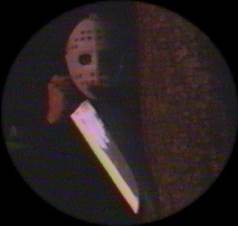
Revenge is, to my knowledge, the most popular reason for monsters to behave the way they do. Frankenstein’s monster vows revenge on humanity. The 50ft Woman avenges her philandering husband. Some say the Birds take their revenge on humanity because of its crimes against nature. Freddy Krueger avenges his death. I believe revenge is so popular because it offers a possibility that the monster may have a point of its own, making it more difficult to automatically identify with humans.
The psychotic monster sometimes looks for love. The "It’s Alive" baby is looking for his loving mama. Those who can’t offer the hideous baby love, must die.
So we learn, that various motives make monsters tick. But then again, we can see that not all monsters are the ones who started it. Why do monsters suddenly appear?
The way I see it there are three reasons for monsters to appear:
Pure Coincidence
This is the least common reason for a monster. It is highly unlikely that monsters would just pop out of nowhere with no connection to anything. But you know, accidents will happen. One good example is "Invasion of the Body Snatchers". The spores while flying in space eventually reached Earth causing what they did. It does increase the tension by letting us know that no matter how careful we are, there’s always a chance... Also in that category, there’s the 50ft Woman, the Fly and the super intelligent Ants from "Phase IV". In cases like "The Birds", we can only speculate what the reasons were, because the Hitchcock doesn't give any clues. I find this case to be perhaps the scariest, because there's no moral justification for the horrbile events. We can't prevent from things to happen.
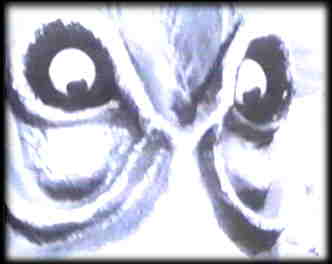
Personal Interest
A lot of monsters do what they do to us, because they want to. They may want all kinds of things. All of this is covered in the previous category of "What is it they want from us?"
Monsters are a Price to Pay
More monsters than you’d imagine appear because of our faults. Sometimes it’s
directly our fault, like the Golem or Frankenstein’s Monster, which
are monsters created by men. Their behavior is another issue, but they existed, because
they were created that way by men.
Note that some monsters are created for the benefit of mankind, like Frankenstein's
Monster (pure scientific research), or HAL, while others, like Mechagodzilla,
for example, are weapons. Nonetheless, they all eventually turn on their creators.
There’s also the indirect reason, like the Giant ants from "Them". It’s messing with science and nature that created a mutation which is a threat to mankind. A kind of "backfire" of nature against us. You’ll find a lot of those around:
Messing with Science: Tarantula, Them, It’s Alive, Night of the Living Dead, Fire Starter
Messing with Nature: King Kong, Gorgo, Lost Weekend
Sticking our Nose where It doesn’t Belong: Forbidden Planet, Alien, Night of the Demon, The Thing (Original Howard Hawk’s Version)
Being Plain Bad: The Brood
This is the place where we really ought to learn a lesson. Knowledge comes for a price. We have to be curious about everything surrounding us. But we must be aware of the potential danger of hasty decisions.
Much of the conflict is determined by the monster's intelligence.
If the monster is intelligent, the hero must be smarter than it. One would think it to be
harder than a non-intelligent one.
Wrong. The problem with a so-called "stupid" monster lies in its
unpredictability. It's possible to confront an intelligent monster face-to-face, if one is
sure what its reaction would be. Not so with the stupid monster.
A few telling examples:
The Predator is the intelligent monster. It has an intelligence akin to humans. That's why Schwartzenneger (in I) and Danny Glover (in II) can confront it. Actually, in both films one can only beat the Predator in its own field.
In the first two films of the Alien trilogy, the creature seemed to be operating on instinct alone. The 3rd showed the Alien had some awareness & utilized intelligence to a certain extent, at least not to kill Sigourney Weaver, who carried its fetus. The 4th stepped even further, as one Alien kills the scientist who tried to tame it, using the same taming methods.
Frankenstein's Monster is, in my opinion, the intelligent monster, at least as portrayed in the book, and if I remember well, in Kenneth Branagh's version. Unlike the so-called super intelligent monsters from outer space, this is an evolving creature, who, in very short period turns into a thinking person. As time progresses, the monster developes conscience, philosophical awareness, finally outdoes Victor Frankenstein himself. Eventually, the monster cannot tolerate the conflict between its evolution, and the social reality as an outcast. The monster is the only creature which can destroy itself. That makes for an awesome monster.

Most animal monsters are fairly stupid. But in "Birds" they have a blind collective power. It would be safe to assume the most degenerate of 'em all is the Blob. It's automatically expanding, swallowing everything in its way.
Well, that’s a tough one, since we have to understand the monster’s weak spot. I mean, if we could just incinerate it, fine. But usually, that wouldn’t be much of a monster, would it?
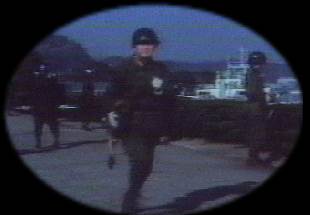 Some monsters seem to have no weak spot at all. Take Godzilla,
f’rinstance. The entire Japanese army (wow!) couldn’t kill him in the first
movie, and he came again and again (Well, he actually got friendly along the way). Other
monsters are vulnerable as individuals, but not as a collective mass. For example, many
zombies were killed during "Night of the Living Dead", but they had the upper
hand eventually. The problem with other monsters seem to lie with their alien physiology.
We simply don’t know where weak spot is, and they’re not gonna just sit around
waiting for us to find out.
Some monsters seem to have no weak spot at all. Take Godzilla,
f’rinstance. The entire Japanese army (wow!) couldn’t kill him in the first
movie, and he came again and again (Well, he actually got friendly along the way). Other
monsters are vulnerable as individuals, but not as a collective mass. For example, many
zombies were killed during "Night of the Living Dead", but they had the upper
hand eventually. The problem with other monsters seem to lie with their alien physiology.
We simply don’t know where weak spot is, and they’re not gonna just sit around
waiting for us to find out.
Let’s examine various methods of disposing with monsters (warning: spoilers ahead!):
Ammunition
Usually, most monsters will be immune to gunshots, otherwise the movie will end 5 minutes after it started. But there are exceptions, like a bullet in the head for the zombie. Human monsters are also vulnerable to normal ammunition, but where the hell did I put my gun?
Fire
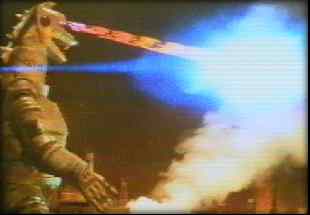 Can be a very useful weapon indeed. Quite a few monsters are vulnerable to
fire. Others don’t pay any attention. The funny thing is that, unlike gunshots, if
someone uses fire against a monster, it is bound to destroy it. When fire is useless, we
know it, simply because it is the monster’s weapon in the first place (the dragon),
or it casually passes through it.
Can be a very useful weapon indeed. Quite a few monsters are vulnerable to
fire. Others don’t pay any attention. The funny thing is that, unlike gunshots, if
someone uses fire against a monster, it is bound to destroy it. When fire is useless, we
know it, simply because it is the monster’s weapon in the first place (the dragon),
or it casually passes through it.
The metaphysical weapon
I call it "metaphysical", since there’s absolutely no scientific reason why, for example, you’ll need a silver bullet to kill the Wolfman. Other metaphysical weapons are the famous wooden stake in the heart of the vampire, erasing the holy words from the head of the Golem, or special chants for evil spirits.
Scientific Warfare
At least one case springs to mind. The classic "War of the Worlds". Trouble is, the time science needs to find a substance against monsters works against humanity. Basically, science sometimes provides the solution to the monsters created by scientists. This way we learn that science has two faces, an evil one and a good one.
Monsters are the physical expressions of our fears. Fear of the unknown, science, slimy things, animals, the dark, communists etc. Monster movies allow us to channel those fears, to see how others cope with them.
Monsters are also better alternative than humans. It's not ok to kill humans, for that we have the penal system. So if we need to get violent, better do it 'gainst the slimy buggers. It's not the monsters we like in this case. Rather, it's the hero we want to see blasting and killing everything. We just don't want to it to be humans he's killing.
Sometime we like monsters because, well, they're likable. ET is. No matter we're dealing with a sadistic molester, Freddy Krueger still a witty person in his own creative and twisted way.
I think I said just about everything I had to say about monsters.
So without further ado, let us proceed to:
If you have any comments, we're ready to listen
Home Music Movies Books Philosophy